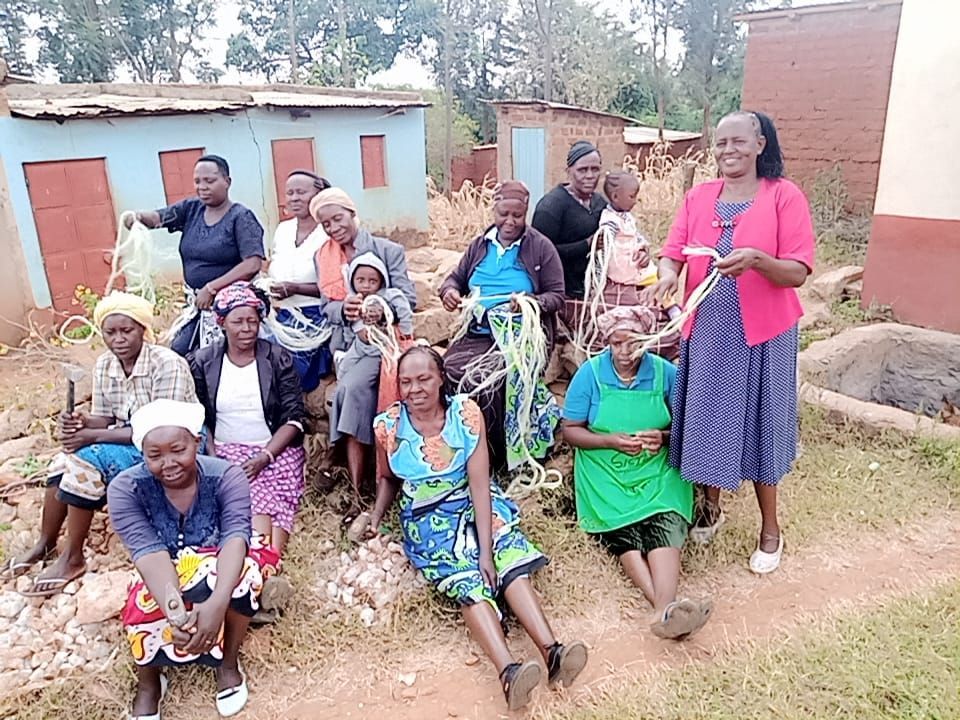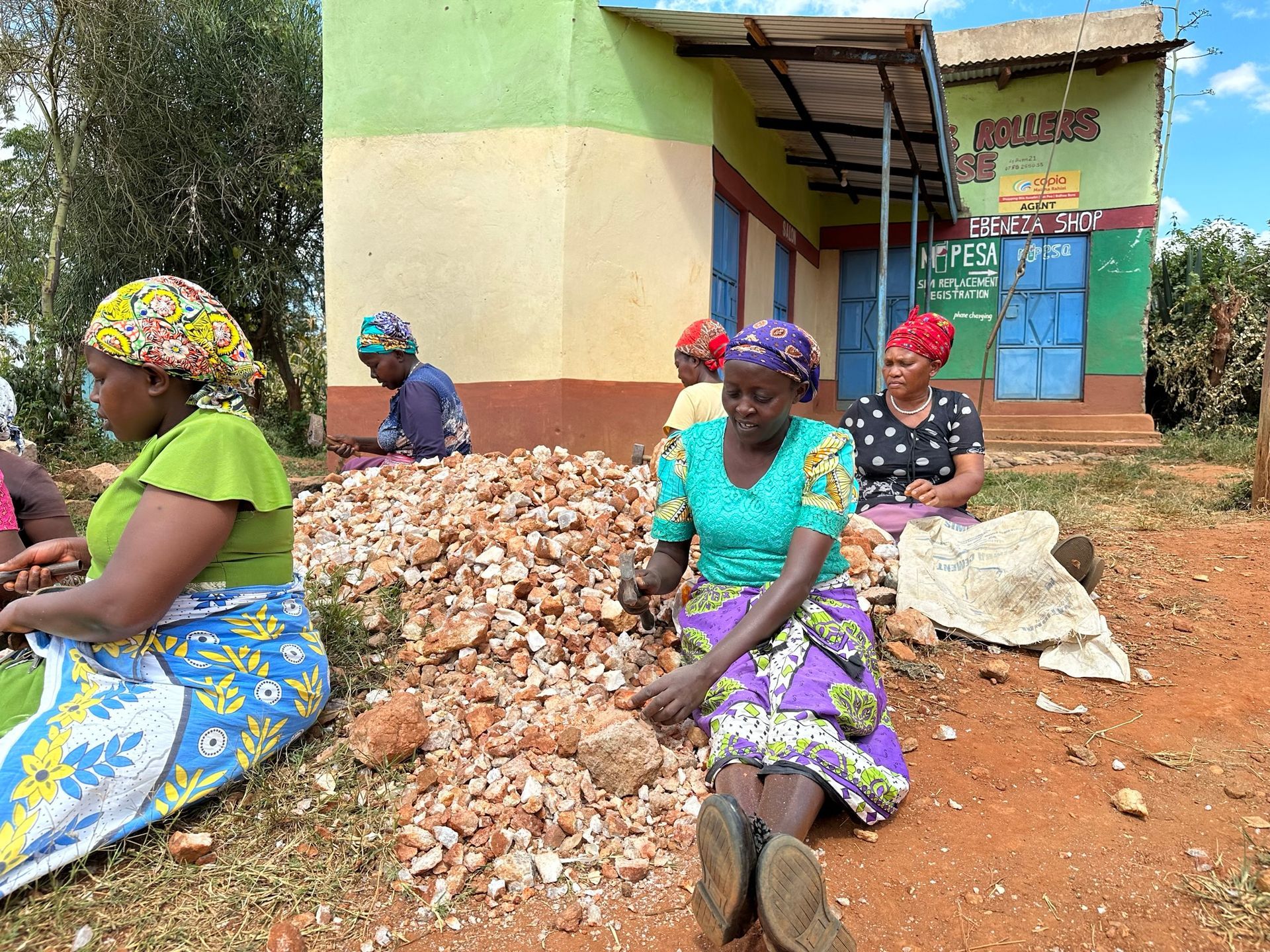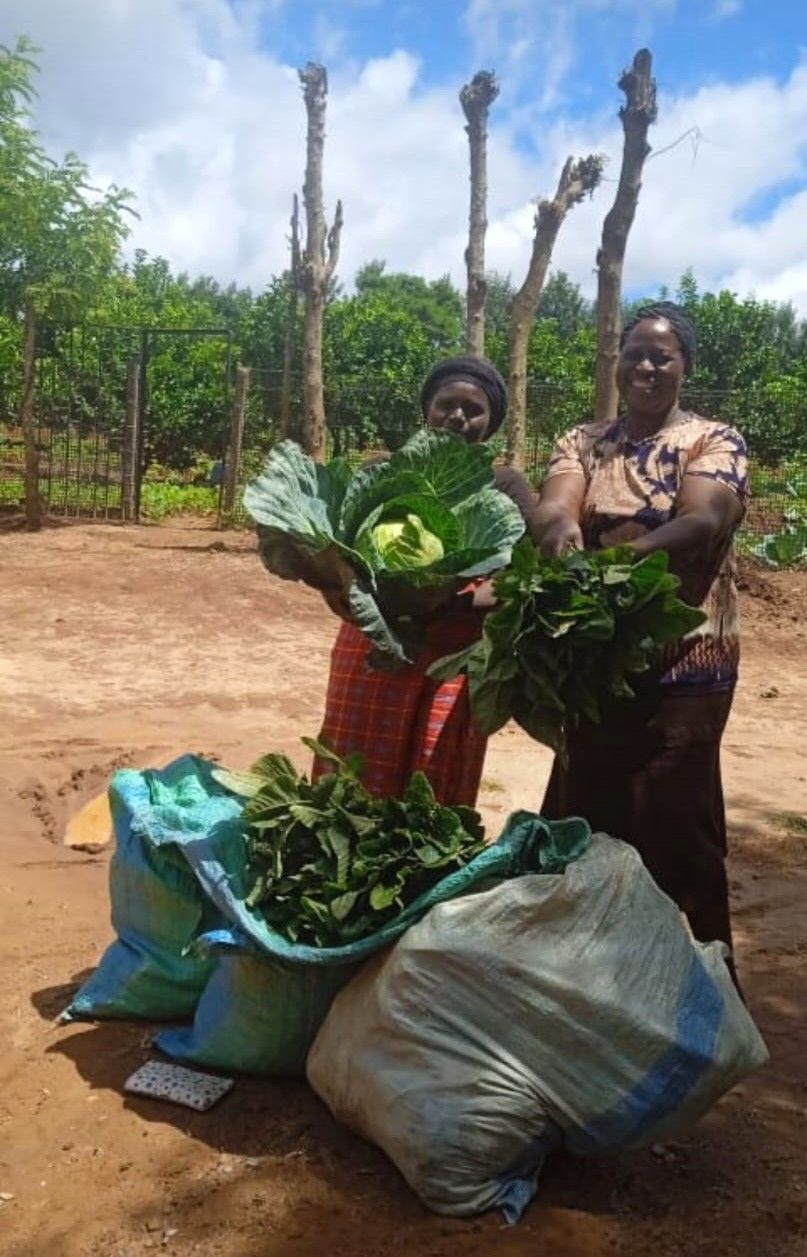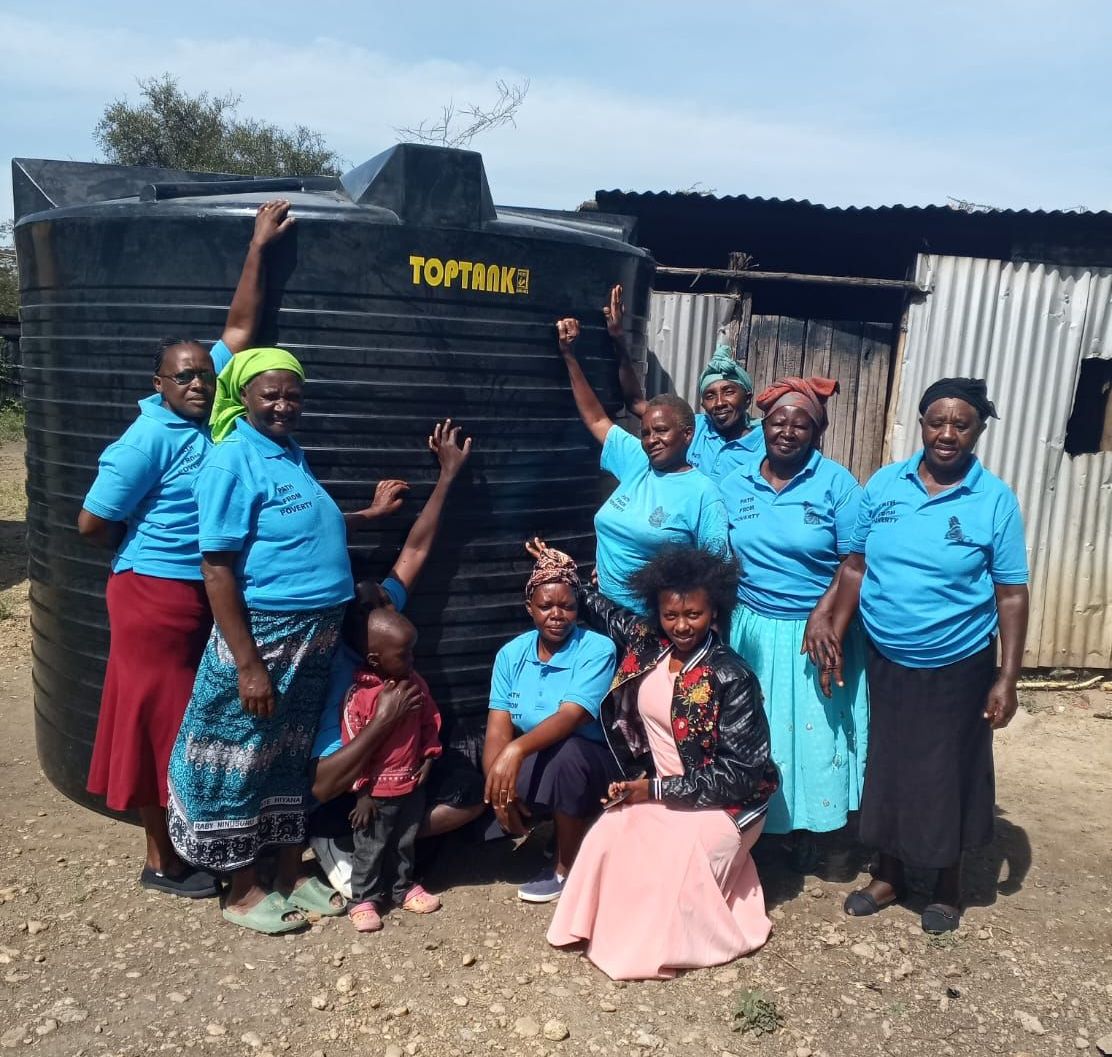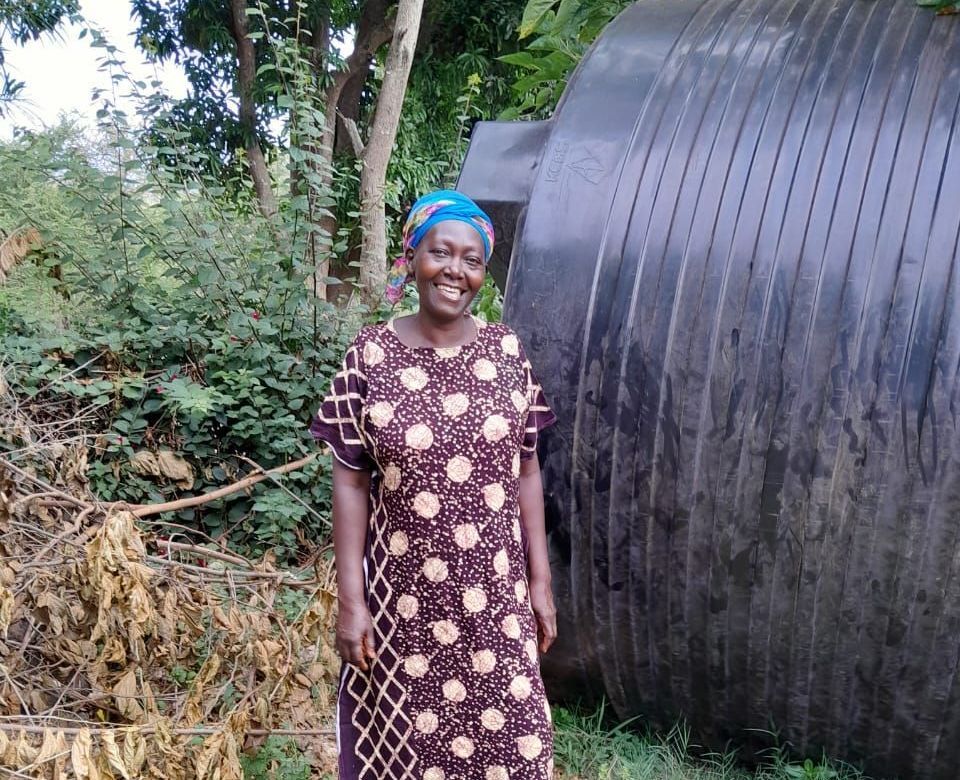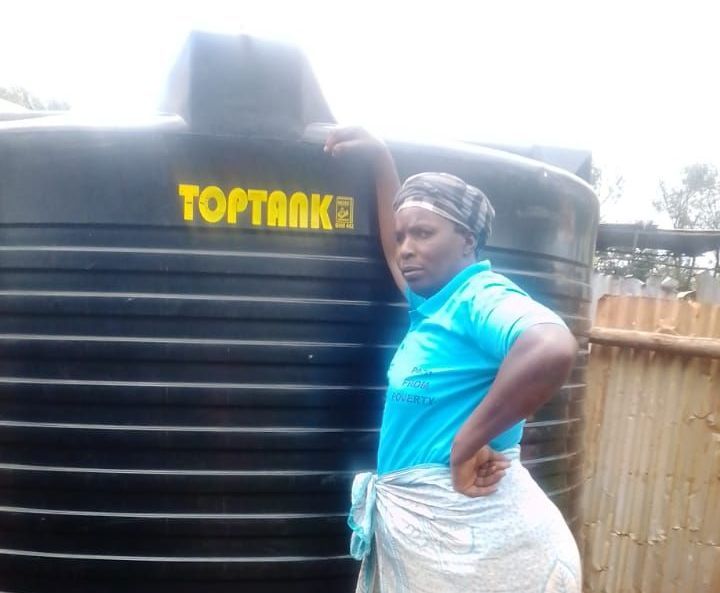Cluster Update - New Income Generating Projects
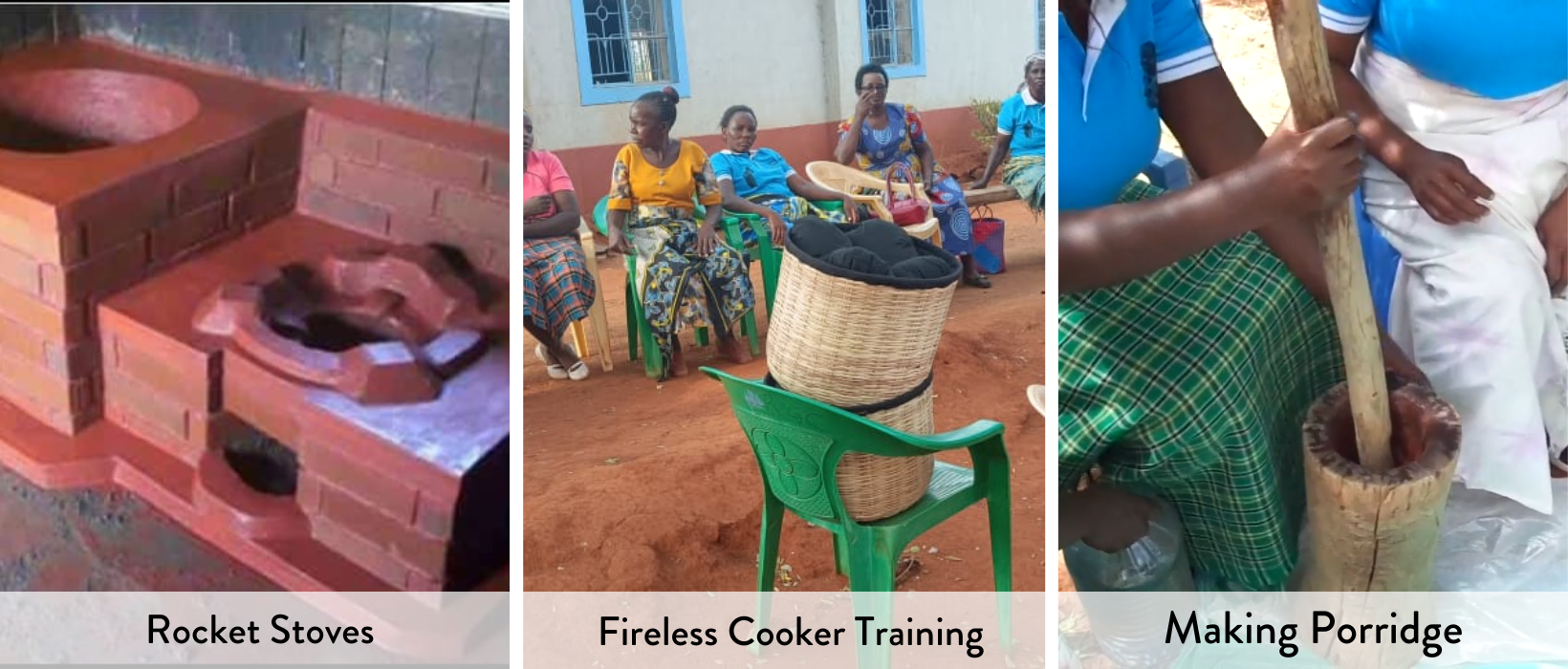
Kibwezi
Group members in Kibwezi are working on making bricks, planting tree nurseries, and beekeeping. It is hard to succeed at these activities without adequate water. The water sources are far away, and Beatrice reports that the women are often confronted by wild and domestic animals like elephants.
Kilome
This month, the training was on a type of poultry called Uzima or Sasso chickens. They discussed the advantages of this breed, the costs, and how to prepare for keeping them. Susan says, “We had a wonderful time, and most members were very interested some immediately ordered for chicks.”
Kisau
Groups in Kisau are doing well and saving to purchase multiple tanks. They trained on vegetable farming and beekeeping. They visited a member with a successful farm to learn about tree nurseries. Older groups are mentoring newer members.
Kola
Groups are working on vegetable and tree nurseries and also doing table banking and merry-go-round banking. The cluster trained on body fitness such as walking and jogging. Annah asks for your support and well wishes so “that every woman conquers every challenge.”
Malili A
Regina says that the cluster is struggling with climate change, and the weather has been unseasonably cold. Aka ma Uiini Women’s Group made sweaters and sold them. Many group members and their families are suffering from illness and hunger.
Malili B
Group leaders are training on record keeping and how to encourage group participation. Groups are selling ballast for construction, making sisal ropes, and doing casual labor at neighboring farms.
Makueni
Women in Makueni are struggling due to the economic situation in Kenya and drought. The leaders are training their groups on how to plant drought resistant crops and starting income generating activities that require less water. Several groups received training on using wonderbags and fireless cookers to save fuel and be more time efficient.
Mbooni
Agnes’s leadership continues to help groups be creative with their income generating activities. Kwiiyumya Women’s Group is “selling avocados like hot cakes. They all carry buckets full of avocado and sell alongside the roads.” Other groups are making school bags for children, harvesting passion fruit and tree tomatoes, and selling firewood and charcoal to help people heat their homes during this cold season.
Agnes started this month’s cluster training with a question: What makes some groups do better than others?” Her answer: spiritual leaders and members, commitment, team work, no gossip, being compassionate, good training before formation, and being transparent and accountable!
Tulimani
This month, the cluster received training on drug abuse among the youth so that they are able to speak to their children and hopefully prevent drug use.
Women are anxiously waiting for the protests in Kenya to cease. The protests are disrupting markets and making it difficult for the group members to sell their ballast and other goods.
Yandue
This new cluster still faces challenges as many members are not educated and are learning to overcome selfishness and meet group expectations. Agnes notes that these are common challenges in new groups and trusts the women will overcome them. Groups have been successful in selling food items including porridge and ice cream. One group is collecting sand from a riverbed to sell and another group has pounded rocks into gravel and sold it for construction projects in Nairobi.
